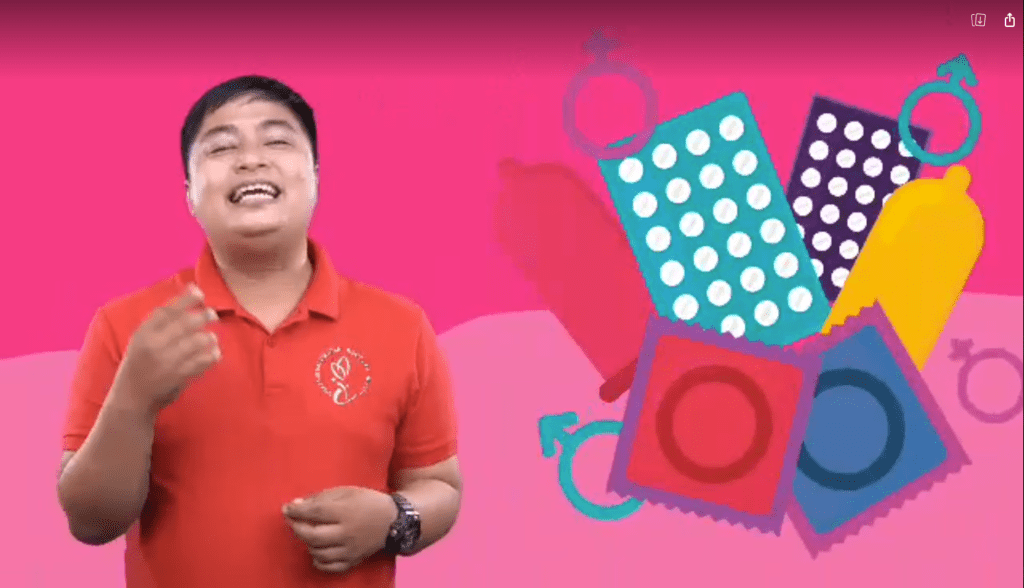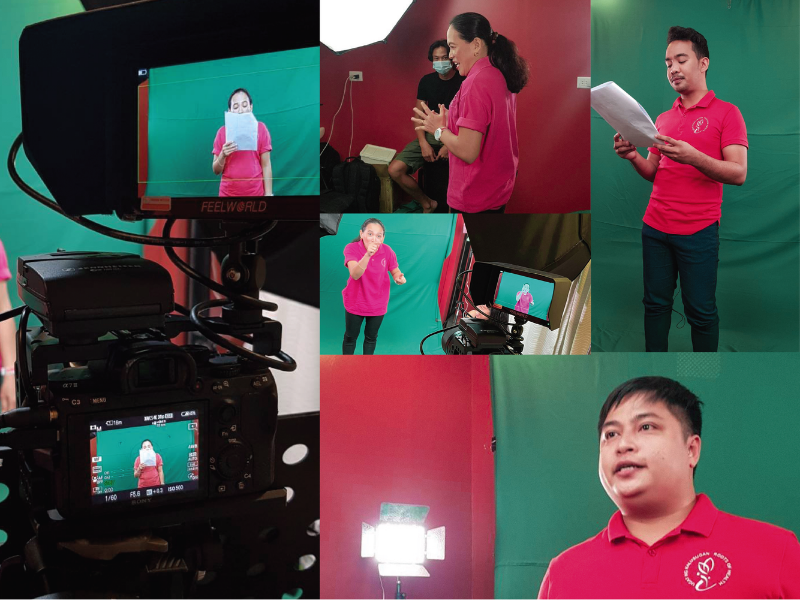by Lhen Hasal
Schools are still closed due to COVID-19 restrictions, and young people are still unable to be on their campuses to learn and interact with their teachers and classmates. Because of this, our teachers are also unable to provide in-person reproductive health classes by hopping in a van, taking a boat ride, or even climbing uphill.
But this doesn’t mean that students don’t need this information anymore. COVID-19 has made young people even more vulnerable to health risks such as teen pregnancy and HIV–all the more reason to keep them informed and empowered.
Millennials and GenZ comprise 92% of the digital viewing audience. Why not be where they are? Why not be the kind of teachers they want us to be?
This is why we started pivoting our work online. Our social media pages have become our virtual classrooms while our posts became our lesson plans. We have also been holding online classes and webinars in real time via Zoom.
Thanks to the support of the Embassy of Canada in the Philippines through the Canada Fund for Local Initiatives, young people can soon learn about reproductive health matters such as pregnancy, birth control, HIV, gender and sexuality, and more, in a more engaging and entertaining format.
That’s because we started producing bite-sized videos of our modules starring our educators. Young people can watch these videos during online classes, or even as they scroll through social media.
Stars in the Making
Our teachers—Connie, Bobby, and Ivann—are celebrities in their own right. Armed with a green screen and lights in a rented studio, it took them only nine hours to finish 11 short videos. These three rock stars needed no teleprompter because they had memorized their scripts and they know these topics by heart.
Of course, it didn’t go without a few slip-ups, but what fun is a shoot without a blooper reel of mispronounced words or getting cross-eyed from staring at the camera? The day was tiring, but we got great laughs, too.
Being in the studio with the video production team was also a great diversion from working at home or the office. We all appreciated the day we spent together, looking back at better days when our teachers were still interacting with students in person.
Videos are Good Teachers
I used to work in TV production, so I’ve always believed that education should include multimedia content such as videos. With the uncertainty that the COVID-19 pandemic has brought, online learning is here to stay.
And what better way to teach and learn sexual and reproductive health than through informative and entertaining educational videos?
Short, easy-to-digest videos are more effective for information processing and memory recall, especially for young people. Millennials and GenZ comprise 92% of the digital viewing audience. Why not be where they are? Why not be the kind of teachers they want us to be?
With young people always online, we’re lucky to have this great opportunity to create informational videos that can be shared easily at all hours of the day and night. This is an opportunity we didn’t want to miss.

Through engaging and entertaining videos on sexual health, young people can stay informed and empowered to take charge of their health and futures. Here’s a sneak peek of one of the videos Roots of Health is producing with a local studio.
The convenience and the versatility of digital videos are assets not only to our clients but to our educators as well. Videos enhance our modules and lectures, so our educators have the flexibility to pause or rewind the videos to discuss or review specific areas.
It is also extremely helpful in opening up class time, as teachers no longer have to sit and talk in front of a webcam for hours on end. Since videos create a more appealing experience to the students, they can be more engaged and more likely to retain new information.
As we adapt to this new normal, we hope that through this project we will be able to facilitate remote learning more efficiently and effectively, educate a far greater audience about sexual and reproductive health, and provide a go-to resource for learning materials that can be accessed anytime and anywhere.





